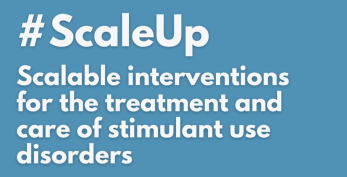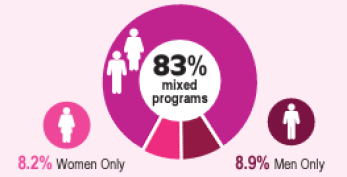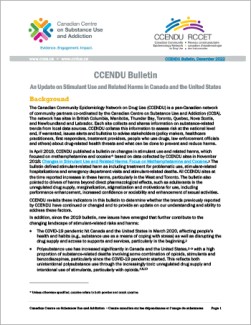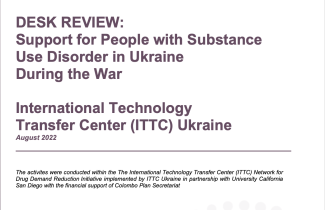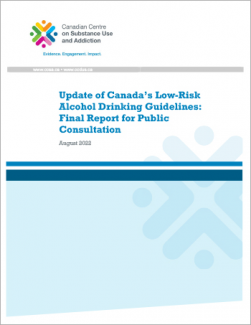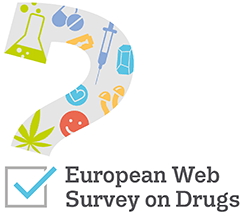
Search
Interruzioni del ruolo della sanità pubblica locale degli Stati Uniti nella prevenzione e nella risposta all'uso di sostanze in base alla popolazione durante il COVID-19
Sfondo
Il COVID-19 ha limitato drasticamente la portata e la portata del lavoro del dipartimento sanitario locale (LHD), reindirizzando le risorse alla risposta. Tuttavia, la necessità di servizi sanitari pubblici essenziali, compresa la...
Experiences of frontline healthcare workers and their views about support during COVID-19 and previous pandemics: a systematic review and qualitative meta-synthesis
Background
Healthcare workers across the world have risen to the demands of treating COVID-19 patients, potentially at significant cost to their own health and wellbeing. There has been increasing recognition of the potential mental health...
Bollettino della rete epidemiologica della comunità canadese sull'uso di droghe (CCENDU): un aggiornamento sull'uso di stimolanti e sui danni correlati in Canada e negli Stati Uniti
La Canadian Community Epidemiology Network on Drug Use (CCENDU) è una rete pan-canadese di partner comunitari coordinata dal Canadian Centre on Substance Use and Addiction (CCSA). La rete ha sedi in British Columbia, Manitoba, Thunder Bay...
Comprendere il consumo di stupefacenti per via parenterale in Afghanistan: una revisione dell'ambito
Sfondo
Diversi rapporti hanno descritto una crescente prevalenza del consumo di droghe illecite in Afghanistan, con il riconoscimento di un recente passaggio dalle modalità tradizionali di consumo che comportano l'inalazione e l'ingestione...
Correlati dell'impegno al trattamento e degli esiti dei clienti: risultati di uno studio randomizzato controllato di nabiximols per il trattamento del disturbo da uso di cannabis
Introduzione e obiettivi
C'è un crescente interesse e prove per l'uso di farmaci cannabinoidi nel trattamento del disturbo da uso di cannabis, ma poco esame dei correlati del trattamento di successo. Questo documento è un'analisi...
Interruzioni del ruolo della sanità pubblica locale degli Stati Uniti nella prevenzione e nella risposta all'uso di sostanze basate sulla popolazione durante COVID-19
Sfondo
L'emergenza COVID-19 ha messo alla prova le infrastrutture sanitarie, mediche e di pubblica sicurezza degli Stati Uniti (USA) in modi senza precedenti. Come punto focale per la salute pubblica nelle loro comunità, i dipartimenti...
INL DDR Partners Call - Garanzia di qualità
Questo mese, il 9 novembre 2022, l'incontro dei partner DDR dell'International Narcotics and Law Enforcement Affairs (INL) ha offerto una discussione sulla garanzia della qualità e ha incluso due presentazioni:
- Miglioramento della...
Evitamento, ansia verso i genitori e auto-accettazione degli adolescenti nel sistema di istruzione secondaria superiore
SFONDO:
Una stretta relazione tra un genitore e un bambino e l'accettazione dei genitori possono mediare l'appropriata auto-accettazione di un adolescente, che è una variabile importante legata alla personalità e un pilastro della salute...
General Principles of Contingency Management for Smoking Cessation
Contingency management (CM) is a psychological treatment based on operant conditioning. It consists of providing incentives in exchange for achieving a target behaviour such as abstinence or other treatmentrelated variables (e.g. session...
Effect of Propylene Glycol and Vegetable Glycerine Ratio in E-Liquid on Aerosol Formation: Overview of Relevant Properties
BACKGROUND:
Electronic nicotine delivery systems (ENDS) generate an aerosol by vaporising e-liquids that usually consist of propylene glycol (PG), vegetable glycerine (VG), and other ingredients (water, nicotine, and flavours). The...
Substance Use and the Role of Families. Results of a Cross-Country Study in Pakistan, Kazakhstan, and Ukraine
BACKGROUND:
In many countries families have rarely been involved in addressing treatment and interventions for family members with substance use disorders (SUDs). The aims of this study were to measure the influence of substance use on...
Contribution of SocioDemographic and Structured Leisure Activities’ Characteristics to Adolescents’ Alcohol Use
BACKGROUND:
Leisure can be a context that can promote positive adolescent development, but it can also be a context that contributes to adolescents engaging in risk behaviours.
AIMS:
The aim of this study is to determine the extent to...
Global Adult Tobacco Survey (GATS)-SA: implementazione, risultati e implicazioni per la politica
DESK REVIEW: Support for People with Substance Use Disorder in Ukraine During the War
Summary
War in Ukraine has inevitably led to the country's health system functioning at reduced capacity. Attacks near hospitals and active military operations force people to change their place of residence and flee from the war to safer...
Update of Canada’s Low-Risk Alcohol Drinking Guidelines: Final Report for Public Consultation
Canada’s Low-Risk Alcohol Drinking Guidelines were originally published by CCSA in November 2011 and were the result of the work of alcohol research experts in Canada. Since then, substantial new research on the association between alcohol...
European Web Survey on Drugs 2021: Emerging findings in Lebanon
The European Web Survey on Drugs1 collected data during March and May 2021 from people who use drugs, are aged 18 or older, and live in 21 EU and 9 non-EU countries including Lebanon. In this period, the populations in many European and...
Interdisciplinary collaboration in the treatment of alcohol use disorders in a general hospital department: a mixed-method study
Background
In somatic health care settings, interdisciplinary collaborations (where various disciplines work coordinated and interdependently toward shared goals) are considered to yield higher team effectiveness than multidisciplinary...
Perspectives of service providers on aftercare service provision for persons with substance use disorders at a Rural District in South Africa
Background
Aftercare programs for people with substance use disorders (PWSUD) are frequently challenged with a number of overlapping obstacles, including uncertain policy consequences and a lack of resources. Despite demographic variety...
Migliorare l'equità e l'accesso al trattamento con buprenorfina attraverso la telemedicina nei programmi di servizi di siringa
Sfondo
Negli Stati Uniti, l'accesso alla buprenorfina rimane basso e sono emerse disparità riguardo a chi riceve il trattamento. Le leggi federali hanno regolamentato la somministrazione di buprenorfina, limitandone in ultima analisi l...
The effects of opioid policy changes on transitions from prescription opioids to heroin, fentanyl and injection drug use: a qualitative analysis
Background
Beginning in the 1990s, non-medical use of prescription opioids (POs) became a major public health crisis. In response to rising rates of opioid dependence and fatal poisonings, measures were instituted to decrease the...
Share the Knowledge: ISSUP members can post in the Knowledge Share – Sign in or become a member

